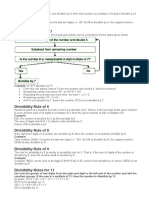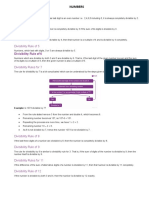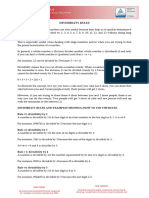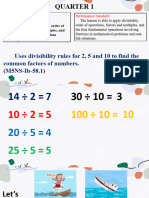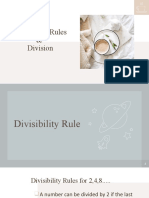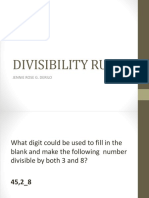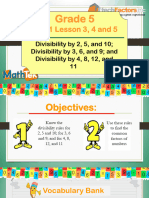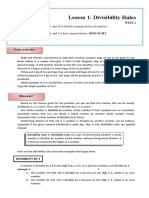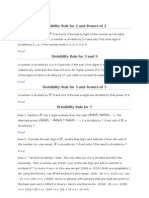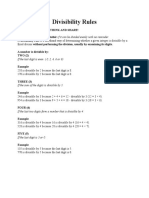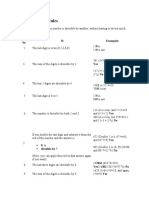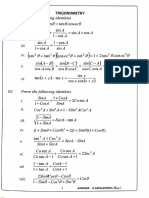0% found this document useful (0 votes)
23 views17 pagesNumber System Class Lecture and Practice Material
The document outlines various divisibility rules for numbers, detailing conditions for divisibility by 1 through 13, including examples for each rule. It also presents a series of mathematical problems related to divisibility and remainders. The content serves as a guide for understanding and applying these rules in mathematical contexts.
Uploaded by
saadahamed1999Copyright
© © All Rights Reserved
We take content rights seriously. If you suspect this is your content, claim it here.
Available Formats
Download as PDF, TXT or read online on Scribd
0% found this document useful (0 votes)
23 views17 pagesNumber System Class Lecture and Practice Material
The document outlines various divisibility rules for numbers, detailing conditions for divisibility by 1 through 13, including examples for each rule. It also presents a series of mathematical problems related to divisibility and remainders. The content serves as a guide for understanding and applying these rules in mathematical contexts.
Uploaded by
saadahamed1999Copyright
© © All Rights Reserved
We take content rights seriously. If you suspect this is your content, claim it here.
Available Formats
Download as PDF, TXT or read online on Scribd
/ 17




